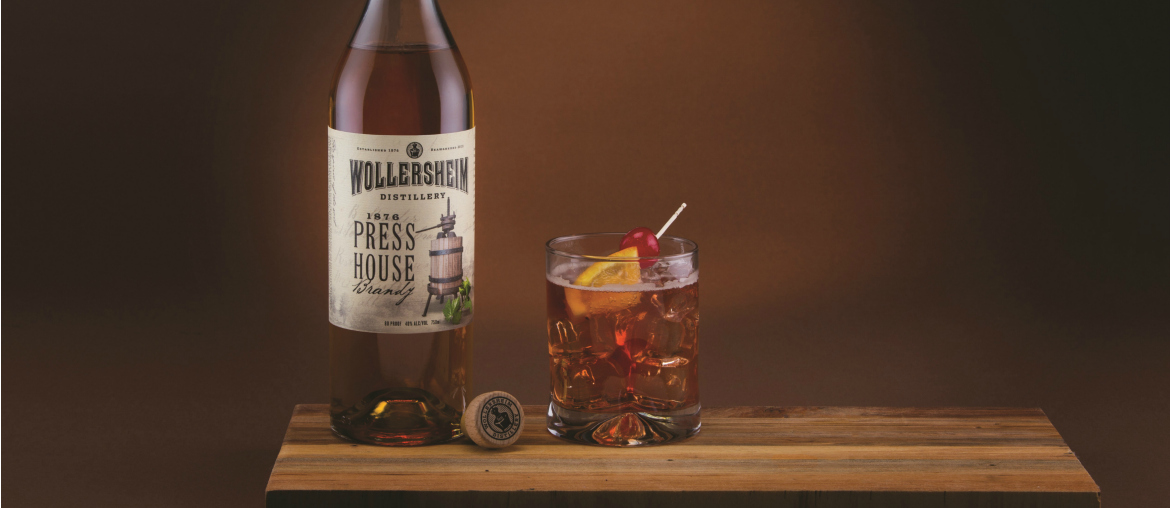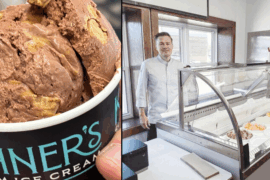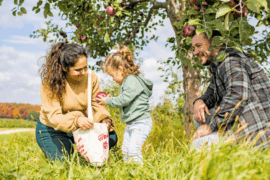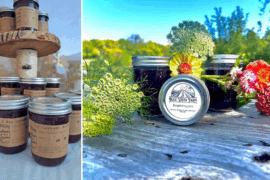Brandy-loving Wisconsin is the top market for California-based Korbel, buying more than one-third of their annual production, but small-batch brandy from Badger State distilleries are gaining attention too. Check out these Wisconsin tasting rooms.
AEppelTreow, Burlington
Apple brandy is made with Wisconsin-grown fruit that ages in new, charred barrels of Wisconsin white oak. The award-winning result is more of a modern version of colonial applejack than a French calvados. Their other brandies use pears and grapes.
Central Standard Craft Distillery, Milwaukee
Brandy with a hint of chocolate is a smooth combo for two award-winning products distilled for Herb Kohler and KOHLER Original Recipe Chocolates. Serve the dark chocolate brandy or chocolate mint brandy straight up, over ice or in cocktails.
thecentralstandard.com, kohlerchocolates.com
Door County Distillery, Carlsville
Hints of vanilla and caramel in Door County Distillery’s traditional brandy come from a blend of red Zinfandel and Viognier wines. Fruit from local orchards turn into wines that are distilled into cherry brandy and an apple brandy (great for hot toddys!).
Great Lakes Distillery, Milwaukee
Tiny batches of 80-proof fruit brandy are made from a cornucopia of fruit, and some choices change seasonally. The Artisan Series includes a five-year apple brandy, blueberry, banana, peach, pear, kirschwasser (fermented cherries), strawberry, grappa (grape residue from winemaking) and barrelaged grappa.
Infinity Winery & Distillery, Eau Claire
The distillery’s Experimental spirits (and wines) are naturally infused and often a limited, one-time production, like their recently released Experimental Peach Brandy Liqueur that’s imbued with fruit grown at home by the distiller’s father. Next up: a brandy aged in whiskey barrels, targeted for release before Christmas.
Old Sugar Distillery, Madison
The Old Sugar in this distillery’s name refers to beet sugar, a part of some spirits. The company’s Brandy Station, made with local grapes, is their signature brandy. The Ultimate Brandy Set includes the aforementioned Brandy Station, along with a bottle of Sally Wagon, a pre-mixed Brandy Manhattan; and their Pomeroy Apple Brandy.
Wollersheim, Prairie du Sac
The longtime winery also produces the award-winning 1876 Press House Brandy, named after the original building used to make brandy on-site in 1876. The formula involves the same varietals used back then too, and the brandy is barrel-aged at least two years before bottling.
Yahara Bay, Madison
Wisconsin-grown Honeycrisp apples turn into apple brandy here, which ages in a bourbon barrel for almost two years. A 2007 batch that aged 10 years was released in 2017. All of the distiller’s products began in a 90-gallon copper still nicknamed “CARL.”
Make Mine Sweet
Wisconsin’s unofficial state cocktail hands down, is the Old Fashioned. The classic recipe begins with the muddling of a maraschino cherry, orange slice, sugar cube and splash of bitters. Then comes ice, but what happens next depends on the bartender, and customer whims.
Brandy is the liquor typically used. Expect to decide on “sweet or sour” because lemon-lime soda (for sweet) or a sour mixer tops the drink off.
Menus at The Old Fashioned, a popular restaurant and bar on Madison’s Capitol Square, embrace the Badger State’s most beloved food and drink traditions. That includes at least seven types of the namesake cocktail. The Northern Exposure involves Kessler’s, and the Applejack uses apple brandy. The rye bourbon version substitutes brown sugar for a granulated cube. The Orange Rum requires orange-flavored rum.
Although Angostura bitters is the universal favorite to enhance an Old Fashioned, aficionados get picky about cocktail garnishes—but that’s a story for another time.
This article originally appeared in the 2018 fall/winter issue of Experience Wisconsin magazine. The contents of this article were checked for accuracy when it was published; however, it’s possible some of the information has changed. We recommend you call first if you have specific questions for the destinations, attractions or restaurants mentioned in this article.
No portion of this article or magazine may be reproduced without prior written permission by the publisher.






Comments are closed.